The Neapolitan Mastiff is a large and powerful breed of dog that originated in Italy. They are known for their massive size, wrinkled skin, and protective nature. If you are considering adding a Neapolitan Mastiff to your family, one of the first questions you may have is, "How much does a Neapolitan Mastiff cost?"
The cost of a Neapolitan Mastiff can vary depending on several factors, such as the breeder, the dog's age, and its pedigree. On average, a Neapolitan Mastiff puppy can cost anywhere from $1,500 to $5,000.
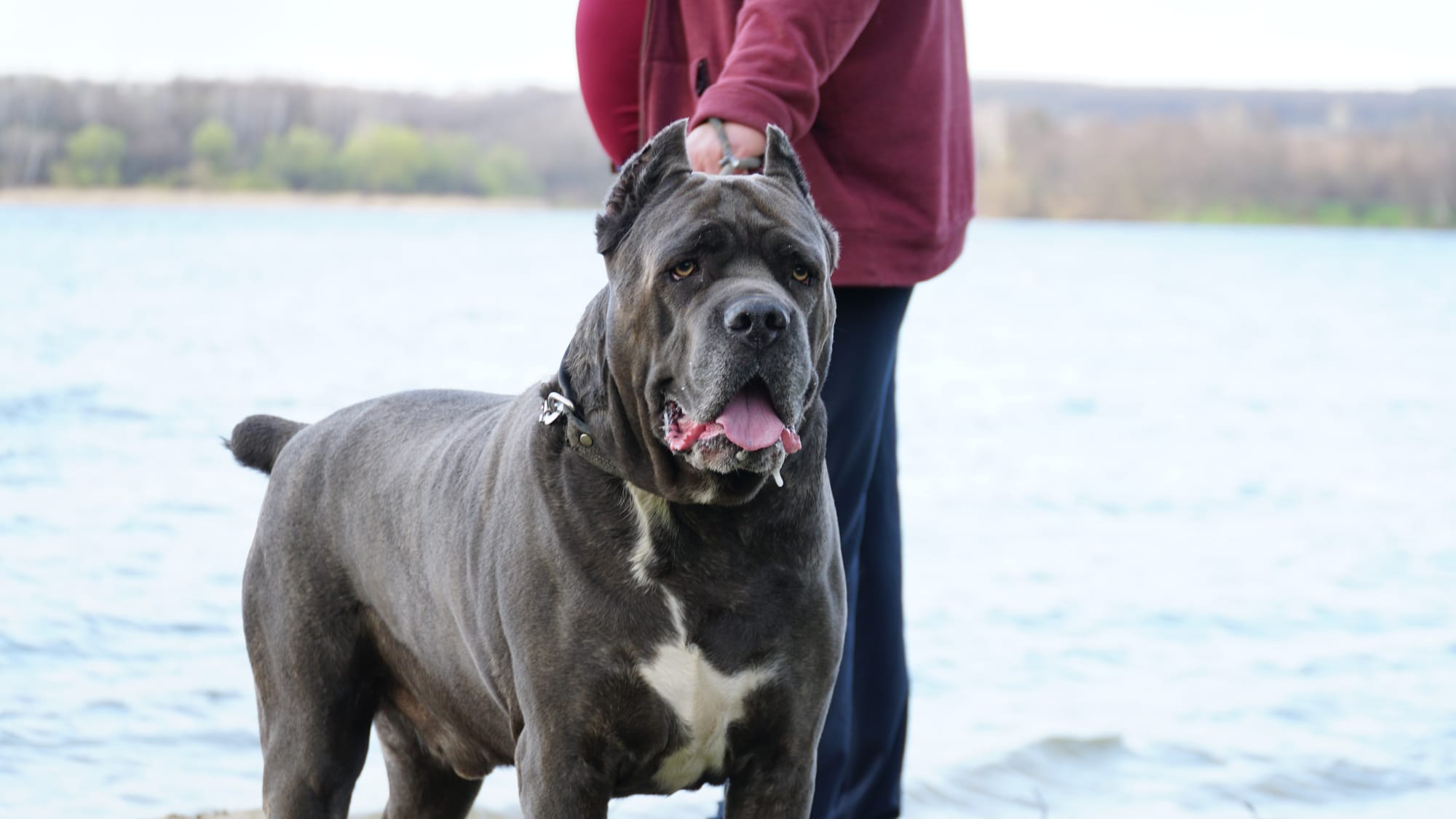
However, some breeders may charge more for puppies with exceptional bloodlines or show potential. It's essential to do your research and find a reputable breeder who can provide you with a healthy and well-socialized puppy.
In addition to the initial cost of purchasing a Neapolitan Mastiff, you should also consider the ongoing expenses of owning one. This breed requires a lot of food due to their size, and they may also require specialized veterinary care. It's important to factor in these costs before making a commitment to this breed. Overall, the Neapolitan Mastiff can be a wonderful addition to the right family, but it's essential to understand the financial commitment involved.
Breed Overview
History and Origin
The Neapolitan Mastiff, also known as Mastino Napoletano, is a huge and powerful dog breed that originated in Italy. This purebred dog has been around for centuries and was primarily used as a guard dog for protecting families and properties. The breed was also used in the arena for fighting and hunting large game.

Appearance and Size
The Neapolitan Mastiff is a large-sized dog breed that can weigh up to 150 pounds. They have a distinct blue color and a wrinkled face that makes them easily recognizable. This breed belongs to the Working Group and is known for its muscular and strong build.
Temperament and Personality
The Neapolitan Mastiff has a protective and affectionate temperament. They are gentle and sweet with their family members but can be stubborn at times. This breed is known for its steady and calm nature, making them excellent watchdogs. They are fiercely loyal to their owners and will protect them at all costs.
Health and Lifespan
Neapolitan Mastiffs are a generally healthy breed with a lifespan of 7-9 years. However, like all breeds, they are prone to certain health issues that potential owners should be aware of.
Common Health Issues
Hip dysplasia and elbow dysplasia are common health problems in Neapolitan Mastiffs. These conditions occur when the joints do not develop properly, leading to arthritis and pain. Dilated cardiomyopathy, a heart disease that affects the heart's ability to pump blood, is also common in the breed. Owners should also be aware of skin folds, which can lead to infections, and cherry eye, a condition where the gland in the eye prolapses and requires surgery to correct.
Preventive Health Measures
To prevent health issues in Neapolitan Mastiffs, owners should ensure that their dogs maintain a healthy weight and exercise regularly. Regular veterinary check-ups are also important to catch any health issues early. Vaccinations for influenza and leptospirosis are recommended, as well as spaying or neutering to prevent certain health issues and behavioral problems. Owners may also consider pet insurance to help cover the cost of any unexpected health issues.
Diet and Nutrition
Feeding Requirements
As a large breed, the Neapolitan Mastiff requires a balanced diet that caters to their specific nutritional needs. High-quality dog food is recommended, as it contains all the necessary nutrients, vitamins, and minerals that the dog needs. It is important to choose a dog food that is appropriate for the dog's age, weight, and activity level.
When feeding a Neapolitan Mastiff, it is important to consider portion control. Overfeeding can lead to obesity, which can cause a range of health problems. It is recommended to feed the dog twice a day, with the portion size based on their weight and activity level. Owners should also ensure that their dog has access to fresh water at all times.

Special Dietary Considerations
Neapolitan Mastiffs may have certain dietary requirements due to health issues or allergies. Some dogs may require a special diet that is low in fat or protein, while others may require a grain-free diet. It is important to consult with a veterinarian to determine the best diet for the dog's specific needs.
In addition to a balanced diet, Neapolitan Mastiffs may benefit from supplements such as glucosamine and chondroitin, which can help maintain joint health. Owners should also be aware of potential food allergies and intolerances, and should avoid feeding their dog foods that contain ingredients that may cause an allergic reaction.
Overall, providing a balanced and nutritious diet is essential for the health and well-being of a Neapolitan Mastiff. By choosing high-quality dog food and monitoring portion sizes, owners can ensure that their dog receives the nutrients they need to thrive.
Exercise and Activity Levels
Neapolitan Mastiffs are known for their calm and laid-back temperament, but they still require regular exercise to stay healthy and happy. In this section, we will discuss the daily exercise needs and mental stimulation requirements of Neapolitan Mastiffs.
Daily Exercise Needs
Neapolitan Mastiffs are not high-energy dogs, but they still need daily exercise to keep them fit and healthy. A daily walk of at least 30 minutes is recommended, but it's important to keep in mind that every dog is different and some may require more or less exercise than others. It's also important to avoid overexerting your Neapolitan Mastiff, as they are prone to joint problems.
In addition to daily walks, Neapolitan Mastiffs can benefit from other forms of low-impact exercise such as swimming or playing in a fenced yard. It's important to provide plenty of opportunities for exercise, but also to monitor your dog's activity level and adjust accordingly.
Mental Stimulation
Neapolitan Mastiffs are intelligent dogs and require mental stimulation to prevent boredom and destructive behavior. Providing puzzle toys, interactive games, and training sessions can help keep your Neapolitan Mastiff mentally stimulated and engaged.
It's important to keep in mind that Neapolitan Mastiffs can be stubborn and independent, so training sessions should be kept short and positive. Consistency and patience are key when training a Neapolitan Mastiff, and positive reinforcement techniques such as treats and praise should be used.
Training and Socialization
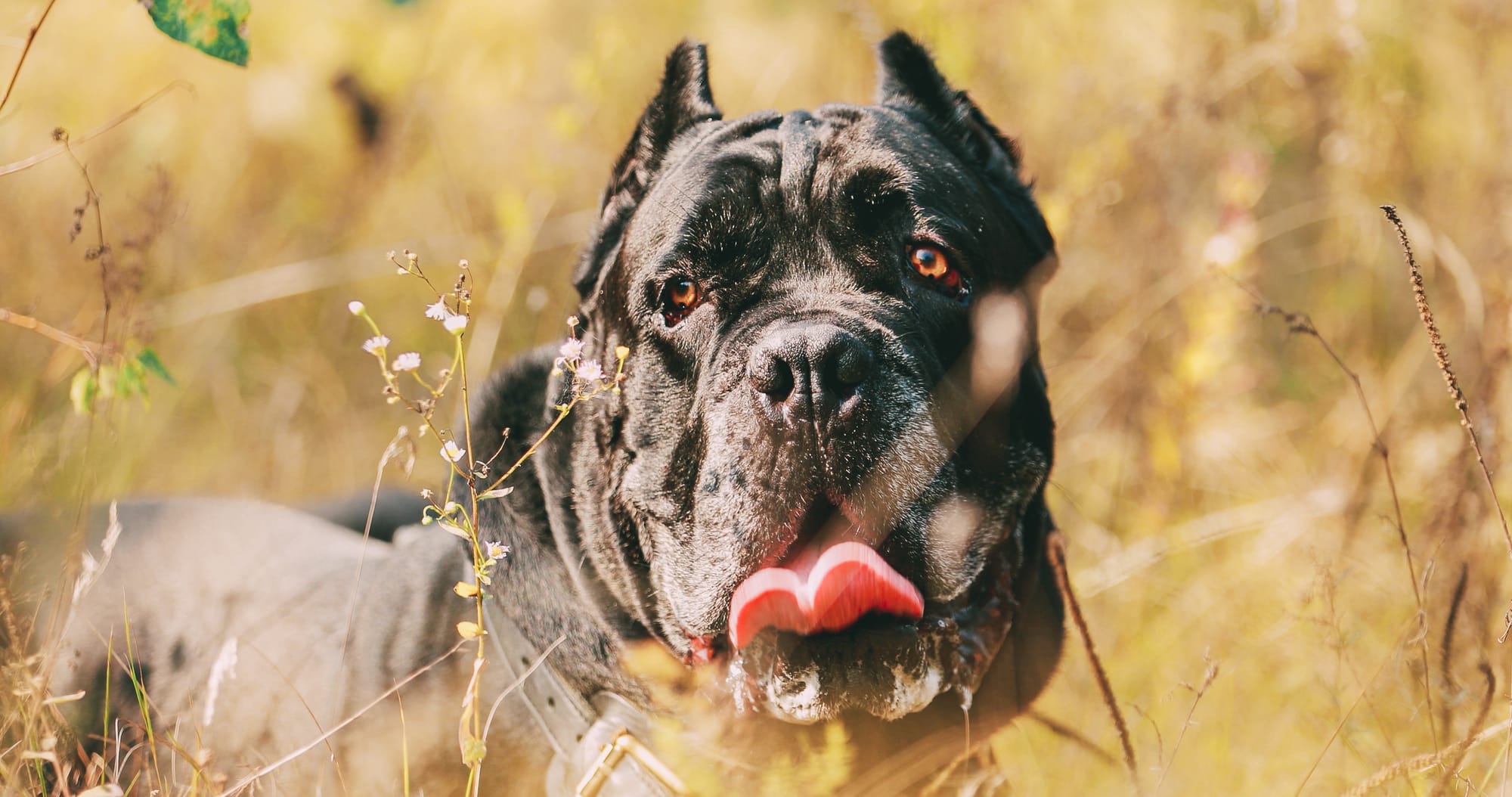
Basic Training
Training a Neapolitan Mastiff is essential to ensure that they grow up to be well-behaved and obedient dogs. Basic obedience training should start as early as possible, ideally when the dog is still a puppy. Mastiffs are strong-willed and require a firm and consistent leader to follow. Training should be done in a positive and reward-based manner, using treats and praise to reinforce good behavior. Harsh training methods or physical punishment should be avoided as they can cause fear and aggression in the dog.
Some of the basic commands that should be taught to a Neapolitan Mastiff include sit, stay, come, and heel. These commands will help to establish the owner's leadership and make the dog more manageable. Mastiffs are intelligent dogs and can learn quickly, but patience and consistency are key to successful training.
Socializing Your Mastiff
Socialization is also an important aspect of training a Neapolitan Mastiff. Socializing your dog means exposing them to different people, animals, and environments from a young age. This will help them to become well-adjusted and confident dogs that are less likely to exhibit aggressive behavior.
Mastiffs can be protective and territorial, which can lead to aggression towards strangers or other dogs. Early socialization can help to mitigate this behavior and make the dog more accepting of new people and animals. Socialization should be done in a controlled and positive manner, using treats and praise to reward good behavior.
Owners of Neapolitan Mastiffs should also be aware of their dog's behavior and take steps to prevent aggressive behavior. Proper socialization and training can help to prevent aggression, but it is important to remember that Mastiffs are powerful dogs that require responsible ownership.
Grooming and Care
Neapolitan Mastiffs are known for their wrinkled skin, drooling, and thick coat. Proper grooming and care are essential to maintain their health and appearance.
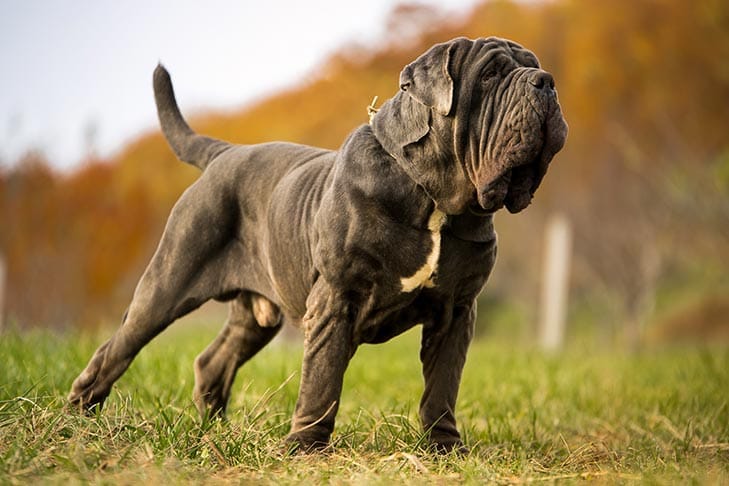
Coat and Skin Care
The Neapolitan Mastiff's coat is short and dense, requiring minimal grooming. However, they shed heavily twice a year, during which they need to be brushed regularly to remove loose hair. Bathing should be done only when necessary, using a mild shampoo to avoid skin irritation.
Their wrinkles and loose skin need special attention. The folds should be cleaned regularly to prevent infections and odors. A damp cloth or baby wipe can be used to clean the wrinkles gently. It is also essential to keep the skin dry to avoid fungal and bacterial infections.
Ear and Teeth Maintenance
Neapolitan Mastiffs have droopy ears that can trap moisture and dirt, leading to ear infections. Their ears should be checked regularly for signs of redness, swelling, or discharge. Cleaning the ears with a cotton ball or a soft cloth dipped in an ear cleaning solution can help prevent infections.
Dental hygiene is crucial for Neapolitan Mastiffs due to their drooling and tendency to develop tartar and plaque. Brushing their teeth regularly with a dog toothbrush and toothpaste can help prevent dental problems. Dental chews and toys can also help keep their teeth clean.
Living with a Neapolitan Mastiff
Home Environment
Neapolitan Mastiffs are large dogs and require a spacious living environment. They are not suitable for apartments or small houses. They need a large yard to play and roam around. Neapolitan Mastiffs are not very active and prefer to lounge around most of the time. However, they still need daily exercise to keep them healthy and happy.
Interaction with Family and Other Pets
Neapolitan Mastiffs are loyal and affectionate dogs. They love spending time with their family and are very protective of them. They make excellent guard dogs and watchdogs. They are naturally suspicious of strangers and will not hesitate to protect their family from intruders.
Neapolitan Mastiffs can get along well with children and other pets if they are socialized properly from a young age. However, due to their large size, they can accidentally knock over small children or pets. Therefore, it is important to supervise their interactions with children and other pets.
Finding a Neapolitan Mastiff Puppy
When looking to purchase a Neapolitan Mastiff puppy, it is important to find a reputable breeder. The American Kennel Club (AKC) provides a list of breeders who have met their standards for responsible breeding practices. It is also recommended to visit the breeder in person to ensure the puppies are being raised in a healthy and clean environment.
The cost of a Neapolitan Mastiff puppy can vary depending on the breeder and location. On average, a puppy can cost anywhere from $1,500 to $3,000. It is important to consider the additional costs of owning a large breed dog, such as food, vet bills, and grooming.
Adoption Options
Adopting a Neapolitan Mastiff from a shelter or rescue organization is a great option for those who want to give a loving home to a dog in need. Shelters and rescues often have adult Neapolitan Mastiffs available for adoption, which can be a great option for those who do not have the time or resources to train and socialize a puppy.
When adopting, it is important to research the shelter or rescue organization to ensure they have a good reputation and are providing proper care for the dogs. It is also recommended to meet the dog in person and spend time with them to ensure they are a good fit for your lifestyle and home.
Overall, whether purchasing or adopting, it is important to do thorough research and make an informed decision when bringing a Neapolitan Mastiff into your home.
Essential Supplies and Accessories
Basic Supplies List
When bringing home a Neapolitan Mastiff, it is important to have the essential supplies ready beforehand to ensure a smooth transition. The following is a list of basic supplies that every Neapolitan Mastiff owner should have:
- Crate: A crate is a necessary tool for house training and providing a safe space for the dog to rest. The crate should be large enough for the dog to stand up, turn around, and lie down comfortably.
- Leash and Collar: A sturdy leash and collar are necessary for taking the dog on walks and keeping them safe in public spaces. It is recommended to use a collar with a buckle or snap closure rather than a slip collar.
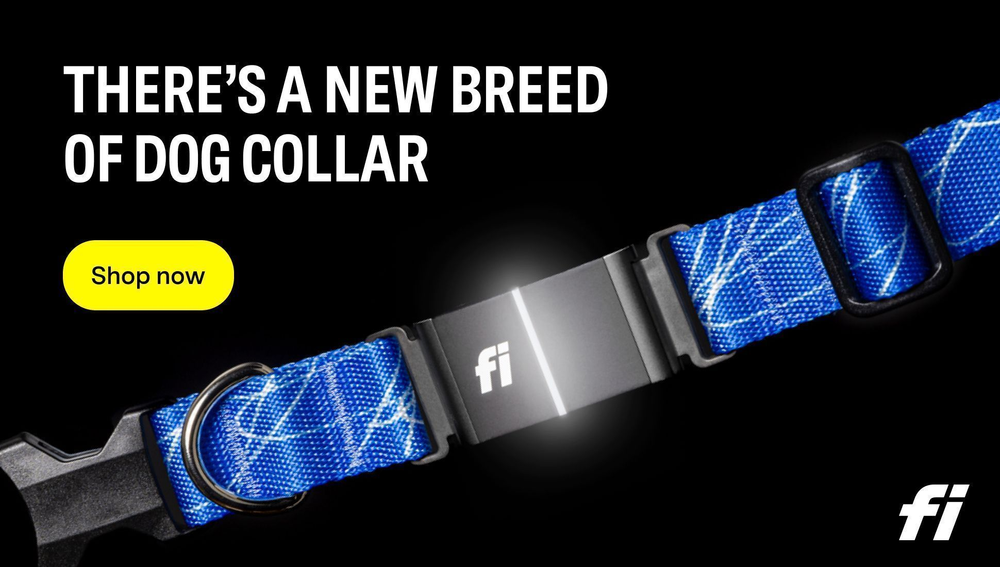
- Food and Water Bowls: Stainless steel or ceramic bowls are recommended to prevent allergic reactions and bacterial growth.
- Dog Food: High-quality dog food that is appropriate for the dog's age, size, and activity level should be provided. It is recommended to consult with a veterinarian to determine the best diet for the Neapolitan Mastiff.
- Grooming Supplies: A brush, comb, and nail clippers are necessary for maintaining the dog's coat and keeping their nails trimmed.
Additional Accessories
In addition to the basic supplies, several accessories can make life with a Neapolitan Mastiff easier and more enjoyable. These include:
- Dog Bed: A comfortable dog bed provides a cozy place for the dog to rest and sleep.
- Toys: Toys are important for mental stimulation and exercise. It is recommended to choose toys that are durable and appropriate for the dog's size and strength.
- Training Treats: High-value treats can be used to motivate and reward the dog during training sessions.
- Dog Trainer: A professional dog trainer can be a valuable resource for teaching basic obedience and addressing behavior issues.
By having these essential supplies and accessories, Neapolitan Mastiff owners can provide their dogs with a comfortable and safe environment while also promoting their health and well-being.
Ownership Costs
Initial Expenses
When it comes to owning a Neapolitan Mastiff, there are some initial expenses that potential owners should be aware of. The cost of purchasing a Neapolitan Mastiff can vary depending on the breeder.
In addition to the cost of the puppy, there are also other initial expenses to consider. These may include:
- Spaying or neutering: This can cost anywhere from $200 to $500 depending on the veterinarian and location.
- Vaccinations: Puppies require a series of vaccinations, which can cost around $100 to $300.
- Supplies: This may include a crate, food and water bowls, leash and collar, toys, and bedding. These costs can vary depending on the quality of the items and where they are purchased.
Ongoing Expenses
Once the initial expenses have been covered, there are also ongoing expenses to consider when owning a Neapolitan Mastiff. These may include:
- Food: A Neapolitan Mastiff can eat a lot of food, so owners should be prepared to spend around $50 to $100 per month on high-quality dog food.
- Grooming: Neapolitan Mastiffs have a short, but dense coat that requires regular brushing and occasional bathing. Grooming costs can vary depending on whether the owner chooses to do it themselves or take their dog to a professional groomer.
- Veterinary care: Neapolitan Mastiffs are prone to certain health issues, so regular veterinary check-ups and preventative care are important. This can cost anywhere from $500 to $1,000 per year.
- Training: Neapolitan Mastiffs are large and powerful dogs, so obedience training is important. This can cost anywhere from $100 to $500 depending on the type of training and location.
Overall, owning a Neapolitan Mastiff can be a rewarding experience, but it does come with some significant costs. Potential owners should be prepared for both the initial and ongoing expenses of owning this breed and seek advice from reputable breeders or veterinarians before making a purchase.
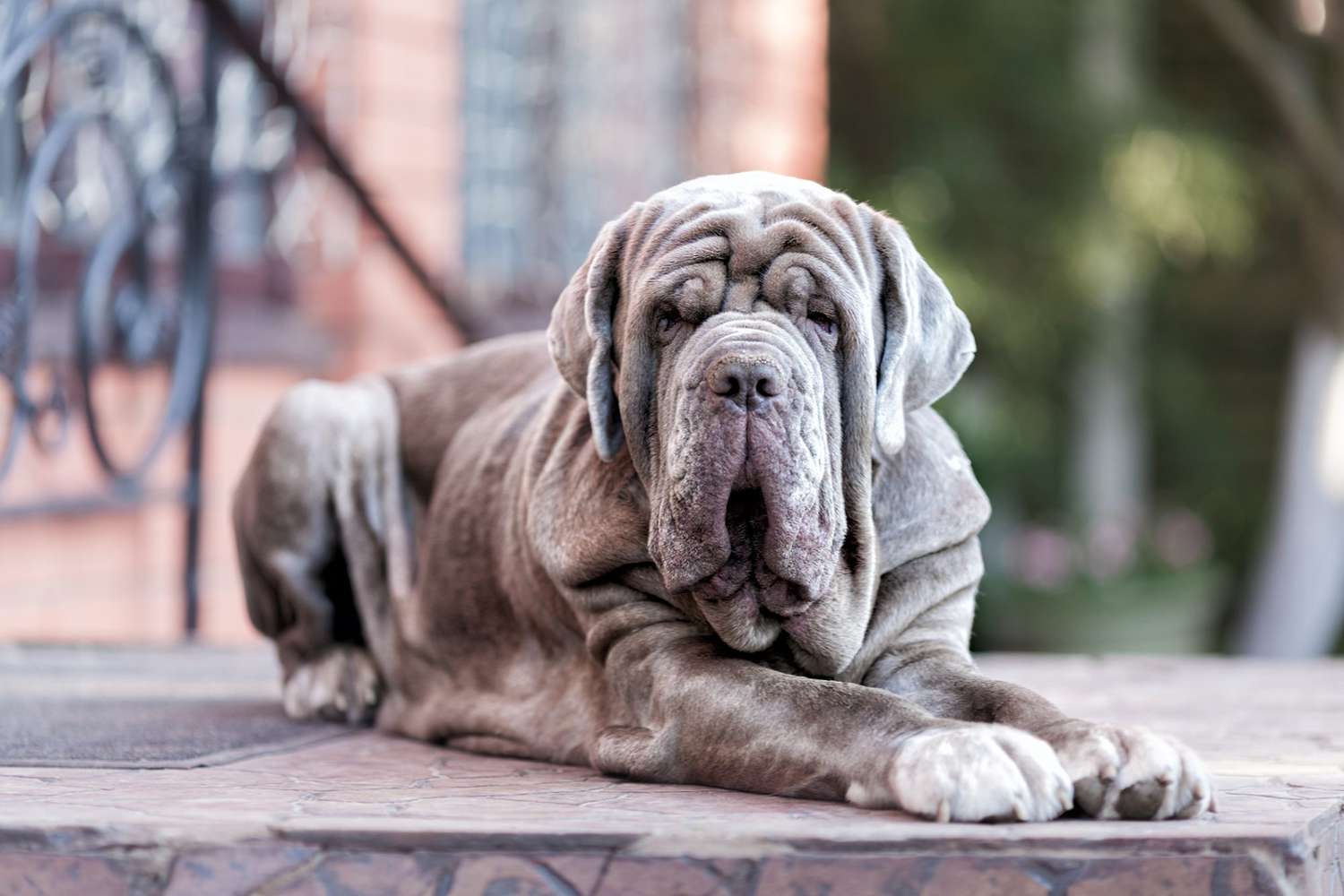
Conclusion
In the quest to bring a Neapolitan Mastiff into your home, navigating the complexities of pricing is a crucial step. By understanding the various factors influencing costs, researching market trends, and prioritizing responsible breeding, you can make an informed decision. Remember, the investment goes beyond the initial purchase, encompassing ongoing care and the joy of companionship with a remarkable canine friend.
Frequently Asked Questions (FAQs)
- What is the average cost of a Neapolitan Mastiff?
- The average cost of a Neapolitan Mastiff can vary based on factors such as lineage, health, and breeder reputation. On average, you can expect to pay between $1,500 to $5,000, but prices may go higher for dogs with exceptional lineage or unique characteristics.
- Are there any ongoing expenses beyond the initial purchase?
- Yes, there are ongoing expenses. Owners should budget for vaccinations, regular veterinary check-ups, quality dog food, grooming supplies, and potential training costs. These ongoing expenses are essential for the overall well-being of your Neapolitan Mastiff.
- How do I identify a reputable Neapolitan Mastiff breeder?
- Look for breeders with positive online reviews and testimonials. Seek recommendations from experienced dog owners or visit local events where breeders may be present. Additionally, a responsible breeder will be transparent about health clearances, lineage, and provide a supportive environment for their puppies.
- Can I adopt a Neapolitan Mastiff from a rescue or shelter?
- Yes, adopting a Neapolitan Mastiff from a rescue or shelter is a viable and often more affordable option. Many dogs in shelters are in need of loving homes, and adopting is a compassionate choice for prospective owners.
- How can I ensure the health of my Neapolitan Mastiff?
- Ensuring your Neapolitan Mastiff's health involves regular veterinary check-ups, a balanced diet, and proper exercise. Additionally, choosing a reputable breeder who offers health guarantees and prioritizes responsible breeding practices contributes to the overall health and well-being of your pet.